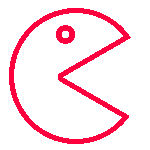Health
Driving efficiencies in healthcare: our HETT review
Interest in apps and digital solutions is growing in the health sector, but sharing is key to ensuring everyone isn't trying to reinvent the wheel.
IE Design exhibited at the Healthcare Efficiency Through Technology expo (HETT) last week, and judging by how busy our stand in the Apps and Innovation Zone was, there’s no doubt that apps are attracting a lot of attention in the health sector right now.
Having spotted a few recurring themes among the visitors we spoke to, I thought I’d write a quick summary of the key topics under discussion.
-
Mental Health apps
Mental Health is high on many agendas at the moment, and the need to reach out to sufferers has never been greater. We met plenty of people who were interested in using apps to help mental health workers keep in touch with service users.
A smartphone app with an intuitive interface can enable users to record how they’re feeling and the external factors affecting them. Their doctor or therapist can view the information remotely via a web dashboard, and can reach out to the patient if they spot a worrying trend, or if diary updates cease completely. Like our HealthTouch app, this can provide a vital link between patient and professional when time and budgets only allow infrequent face-to-face and telephone contact, and is a great way to spot problems before they escalate.
-
Remote servicing apps
Similarly, delegates were interested in using apps or websites to keep in touch with service users in more remote parts of the UK, or with people on the move such as the homeless. As long as they have some kind of internet access, remote contact can provide a lifeline to people in rural communities, while smartphones are increasingly being made available to the homeless to enable just this kind of support.
In addition, through our work with cancer charity CLIC Sargent, we’ve seen the benefits of providing a digital community app to connect sufferers of particular conditions. This allows youngsters - who may never be able to meet in the real world - to trade experiences and provide mutual support.
-
Post-operative and rehabilitation apps
Many of our visitors had ideas for apps to maintain a dialogue with service users following an operation or other serious health problem. With the right user journey and decisions built in, an app can keep communications flowing, manage appointments and medication reminders, and identify any irregularities in the patient’s recuperation. Dealing with routine cases remotely reduces the impact on the service, freeing time for those cases genuinely requiring further consultation.
So what next?
What’s clear from the event is that lots of very different service providers are experiencing very similar issues that might be helped with a digital solution. It will be vital over the coming months and years to ensure that, where possible, investment in innovation can be shared across different organisations – particularly within disparate parts of the NHS – to avoid duplicating effort and wasting limited funds.
Public Health England is working towards putting a system in place to allow new NHS apps to be peer reviewed and rated before making them available across the NHS, which should make it easier for organisations to share innovations and guarantee quality. More on this in a future blog post.


